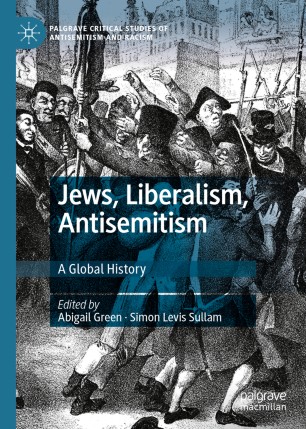

Most ebook files are in PDF format, so you can easily read them using various software such as Foxit Reader or directly on the Google Chrome browser.
Some ebook files are released by publishers in other formats such as .awz, .mobi, .epub, .fb2, etc. You may need to install specific software to read these formats on mobile/PC, such as Calibre.
Please read the tutorial at this link. https://ebooknice.com/page/post?id=faq
We offer FREE conversion to the popular formats you request; however, this may take some time. Therefore, right after payment, please email us, and we will try to provide the service as quickly as possible.
For some exceptional file formats or broken links (if any), please refrain from opening any disputes. Instead, email us first, and we will try to assist within a maximum of 6 hours.
EbookNice Team

Status:
Available4.6
7 reviews“This is a timely contribution to some of the most pressing debates facing scholars of Jewish Studies today. It forces us to re-think standard approaches to both antisemitism and liberalism. Its geographic scope offers a model for how scholars can “provincialize” Europe and engage in a transnational approach to Jewish history. The book crackles with intellectual energy; it is truly a pleasure to read.”- Jessica M. Marglin, University of Southern California, USA
Green and Levis Sullam have assembled a collection of original, and provocative essays that, in illuminating the historic relationship between Jews and liberalism, transform our understanding of liberalism itself. - Derek Penslar, Harvard University, USA
“This book offers a strikingly new account of Liberalism’s relationship to Jews. Previous scholarship stressed that Liberalism had to overcome its abivalence in order to achieve a principled stand on granting Jews rights and equality. This volume asserts, through multiple examples, that Liberalism excluded many groups, including Jews, so that the exclusion of Jews was indeed integral to Liberalism and constitutive for it. This is an important volume, with a challenging argument for the present moment.”- David Sorkin, Yale University, USA
The emancipatory promise of liberalism – and its exclusionary qualities – shaped the fate of Jews in many parts of the world during the age of empire. Yet historians have mostly understood the relationship between Jews, liberalism and antisemitism as a European story, defined by the collapse of liberalism and the Holocaust. This volume challenges that perspective by taking a global approach. It takes account of recent historical work that explores issues of race, discrimination and hybrid identities in colonial and postcolonial settings, but which has done so without taking much account of Jews. Individual essays explore how liberalism, citizenship, nationality, gender, religion, race functioned differently in European Jewish heartlands, in the Mediterranean peripheries of Spain and the Ottoman empire, and in the North American Atlantic world.